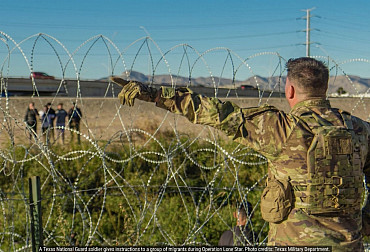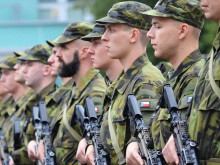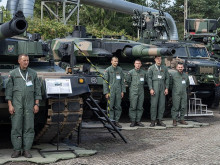Lucie Brešová: Together with Poland, we are among the most advanced cybersecurity ecosystems in Central and Eastern Europe
The Recursive media group, together with its partners, recently presented the first comprehensive report mapping the state of innovation in defense and dual-use technologies and cybersecurity in 19 countries in Central and Eastern Europe (CEE). The publication, "The State of Defense & Cybersecurity Tech in CEE," shows that the region is gradually transforming from a mere consumer of security solutions to an active provider and innovator.

The report emphasizes that Russian aggression in Ukraine has significantly accelerated the development of defense technologies and the rise of new startups. According to the authors of the report, it is impossible to defend without people, but it is impossible to win without technology. Technology thus plays a key role in the defense strategies of both states and companies today. Cybersecurity is becoming one of the critical pillars of defense in the region. The number of university programs is growing significantly—more than 240 universities in CEE now offer specialized courses focused on cybersecurity. At the same time, however, European markets are hampered by complex regulations that slow down commercialization and company growth.
The report also devotes separate attention to individual countries. The Czech Republic ranks among the most advanced ecosystems in the field of cybersecurity, together with Poland. The authors mapped 26 Czech startups specializing in cybersecurity and another 7 startups in the field of defense and dual-use technologies. One of the main supporters of these startups is the Presto Tech Horizons fund, which focuses on startups engaged in the development of defense and resilience tech products not only in the Czech Republic, but also in NATO and allied countries. According to Lucie Brešová, a partner at the fund, the security environment in Europe is changing dramatically, and the role of Central and Eastern Europe is changing along with it. “A new analytical report states that the region is no longer just a passive recipient of security and defense technologies, but is increasingly becoming their developer and exporter. "Countries such as Poland, Ukraine, Estonia, the Czech Republic, and Romania have managed to build their own capacities that are competitive on a global level," explains Lucie Brešová.
Russian aggression in Ukraine has fundamentally transformed the region's defense industry. Ukraine has become the 'most advanced laboratory' for the development and testing of modern defense technologies in real combat conditions. "While the development of traditional weapon systems used to take years, today technological innovations happen literally overnight, sometimes even within hours. Developers respond immediately to feedback from the battlefield and test new solutions," Brešová explains. According to her, this unprecedented speed of development is also attracting new investors. "Today, governments and corporations openly collaborate with technology startups that can deliver innovation faster than traditional suppliers. After decades, the defense sector has thus become attractive to venture capital and civilian innovators."
Cybersecurity plays a significant role in modern conflicts. "Conflicts no longer begin with a shot, but with a disruption of systems—whether energy networks, logistics, communications, or hospitals. Cyberattacks are fast, cheap, and often difficult to trace. Crucially, they affect both civilian and military infrastructure," says Brešová. That is why companies are also becoming part of national defense. "Building robust cybersecurity is no longer an 'extra' but an existential necessity for any functioning defense system." Development is hampered mainly by regulation, complex administration, and a shortage of highly qualified experts. "According to the report, there is currently a global shortage of 2.8 to 4.8 million cybersecurity experts. No matter how good our technology is, people will always be the key element," Brešová points out. Another weakness is limited access to late-stage financing. "Historically, defense and dual-use startups have struggled with less investor interest, which slows down the pace of development and the ability to scale solutions to international markets. However, we believe that in the context of a changing geopolitical climate, more and more investors are recognizing the strategic importance of technological resilience and sovereignty."

According to the report, the Czech Republic ranks among the leaders in the region in the field of cybersecurity. "Together with Poland, we are among the most advanced cybersecurity ecosystems in Central and Eastern Europe. We have a strong tradition of innovation and talent, as evidenced by names such as Avast and AVG. The new generation is represented by startups such as IP Fabric and Ellio Technologies," adds Brešová. Over the past three years, 26 cybersecurity startups and seven defense and dual-use startups have been launched in the Czech Republic. "For a country of our size, this is a very good result, but the goal is to have more such successful companies at a higher level. It is in the interest of individuals, companies, investors, and the state," she adds.
The Presto Tech Horizons fund has already invested millions of euros in startups in areas such as artificial intelligence, autonomous systems, cybersecurity, and ISR technologies. "Our companies supply technologies that are already being used by the Ukrainian army, NATO units, and partners in the defense and security sector. In some cases, we are addressing the biggest challenge: increasing production to meet growing demand," explains Brešová. "Thanks to our partnership with industry player CSG and our European network, we have access to unique deal flow and practical validation of solutions. We don't invest in promises, but in technologies that stand up in practice—even in real conflict conditions," concludes Lucie Brešová, a partner at Presto Tech Horizons.



















